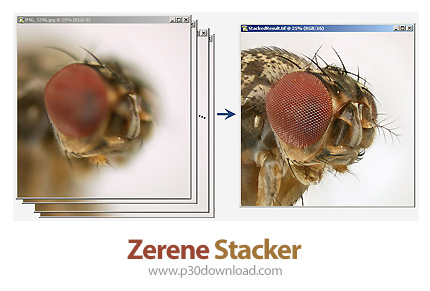

#Zerene stacker vs photoshop how to
Practise your stacking technique on subjects that don’t move! Live subjects like water fleas and mosquito larvae make attractive subjects for stacking, but you need to learn how to confine or anaesthetise them first.Stacking inevitably has its limitations, and there are a few general rules that will help you to make better stacked images.

What if we took a new picture each time we made an adjustment to the fine focus, and then combined each of these ‘slices’ together to reconstruct the full depth of the subject? In fact we can do exactly this and use software to select the sharply-focused parts of each slice and combine them into a single composite image showing greatly extended apparent depth of field. That way, we get a much better impression of the 3D structure we are seeing. To appreciate them, we use the fine-focus control to bring various parts into sharp focus in sequence. Many of the subjects that we enjoy examining through our microscope have significant depth. Stacking is the process of combining a series of digital images of the same subject area, taken at different focal planes, into a single image with great depth of field, using a computer program. Home | Resources | Stacking & stitching | Stacking Stacking Enhancing depth of field by combining image stacks Introduction

Bulletin of the Quekett Microscopical Club.


 0 kommentar(er)
0 kommentar(er)
